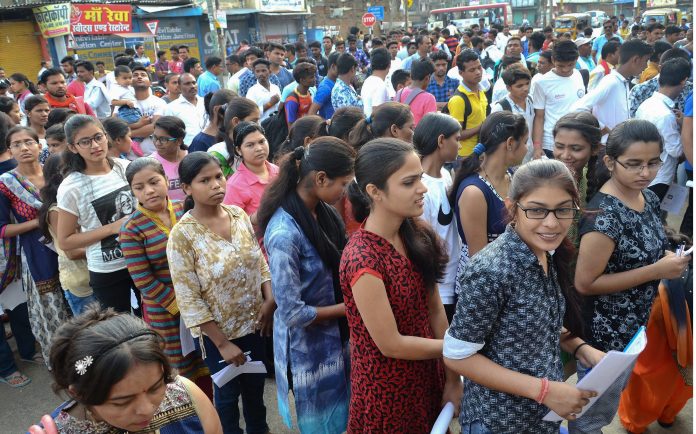
How a TN state board school is churning out NEET successes

Vidya Bharathi Matriculation School in Neikkarapatti and Vedhha Vikass Higher Secondary School in Santhiyur, both from Salem district, follow the samacheer kalvi system — the education system prescribed by the state government. In three years, 2016-17, 2017-18 and 2018-19, 59 students from these two schools have cleared NEET and many got admission in government medical seats. Of the 59, around 40 were women students.
The students did not spend any additional money or extra time for NEET coaching, outside their school. They were given coaching by ‘Enrich Education Foundation’, a consortium of teachers and teacher educators in the district. They provided coaching for three hours daily, during the regular timings of the schools.
In 2017, 14 students from the school qualified in NEET, out of which seven were able to get into government medical colleges. In 2018, the number rose to 21 and nine got admission in government colleges. This year, 24 qualified and 11 are eyeing government medical colleges in the state. The highest mark scored this year by these students stands at 491 out of 720.
Venkatachary Ranganathan, a former district education officer and the founder of the organisation, lays out the details. The syllabus, particularly for science subjects, has only seven themes which are common from Class 6 to Class 12, and are practically similar to advanced countries in the west, he says. “While the education boards in most of the states have accepted the NCERT books both in letter and spirit, the Tamil Nadu state education board has published its own books based on the NCERT pattern. When the books are based on NCERT style, why can’t a student can qualify the NEET exams, which prepares questions from the same NCERT books?” asks Ranganathan, adding that only the approach to teaching concepts needs to change from rote learning to conceptual understanding.
Also read: Since 2017, five students ended life over NEET performance in TN; all were women
Early start can make a difference
A student who aspires for medical education needs to study around 97 chapters from Physics, Chemistry and Biology books of Class 11 and Class 12. Ranganathan says that if a student started to study from Class 11 and if he/she managed to cover and is thorough in at least 25 chapters, that is enough to pass NEET.
In NCERT books, at the end of every chapter, they have given questions under the heading ‘exercise’. They have also provided the solutions. Many of the independent NEET trainers shot videos of those questions and put it in the social media platforms, he adds. It is to be noted that the coaching centres in the states like Rajasthan use these videos to train the students.
“If our teachers make use of those videos, that is more than enough to make a student to clear the exams. But instead of doing that, the books published under new syllabus contain questions taken from previous year NEET and IIT JEE question papers. The NEET and IIT JEE have different kinds of questions and mixing them brings confusion among the teachers. The problem with our teachers is that they haven’t seen either the CBSE books or even the videos on YouTube,” says Ranganathan.
“For example, if you take biology, in this year’s NEET exam around 33 questions out of 45 were straight from the state syllabus book. In Physics eight questions out of 45 were from the state’s book. So a student could have easily scored more than 160 marks. If a student did not score more than 100 marks, it is the teacher who should be blamed and not the student” he says.
Ranganathan also points out another issue, which the state has overlooked. In 2005, the Tamil Nadu government abolished the ‘improvement exams for higher secondary examination’. But after NEET implementation, the ‘improvement exam model’ has seen a gradual yet steady rise in the state, since there are only 3,250 government seats.
“Around 1,000 students alone can get government seats in their first attempt. The remaining seats are taken by students who attempt for the second time,” says Ranganathan.
Also read: NEET: TN misses entry to top 50 list, but state performs well overall


